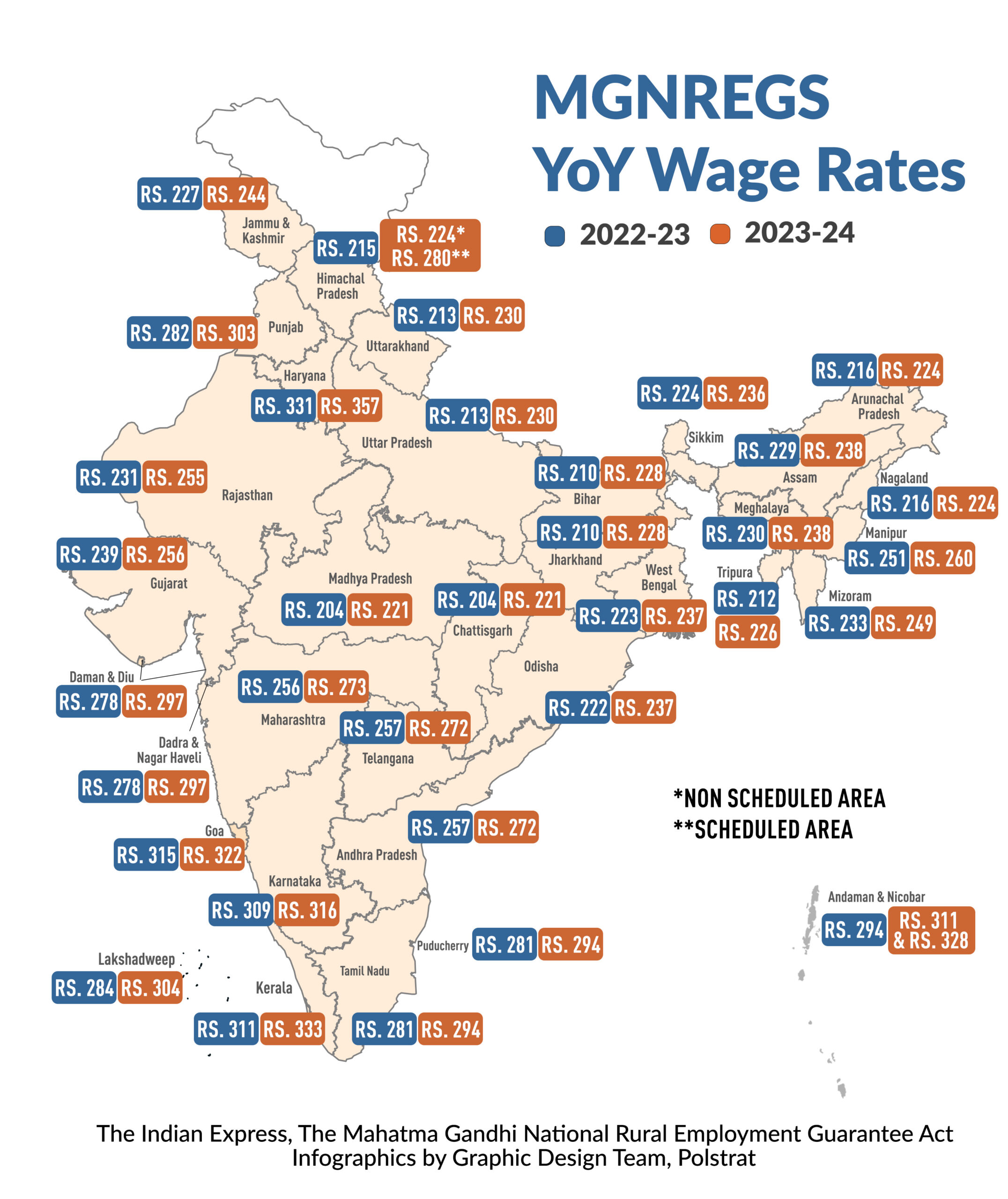
According to a study conducted by the National Council of Applied Economic Research (NCAER) and the University of Maryland, the Mahatma Gandhi National Rural Employment Guarantee Scheme (MGNREGS) helped reduce the incidence of poverty in rural areas by up to 32 per cent and prevented 1.4 crore people from falling into poverty. The study was based on data from 26,000 rural households in two rounds of a survey conducted in 2004-05 and 2011-12 and reaffirms the positive impact of MGNREGS on rural lives and livelihoods.
Interestingly, while both the scope and scale of MGNREGS have expanded in the last few years with new-age tools used for implementation and the scheme’s enlarged focus on providing skill upgradation to its beneficiaries, the budgetary allocation for the scheme has recorded a decline. While the revised budgetary estimates and the actuals record increased financial spending, the budgetary allocation for the next year is still lower than the previous year.
The scheme, under which a total of 11.37 crore households availed employment and 290 crore person-days employment was generated till 15th December, 2022, witnessed a wage hike recently, varying between two to ten per cent for different states.
The impact of the scheme on the lives of rural residents in the form of providing assured employment and increasing the asset base of rural areas cannot be emphasised enough and calls into question declining fund allocation and measly increases in wages.